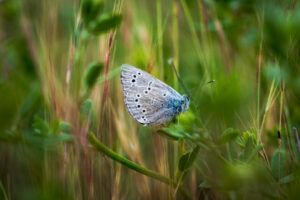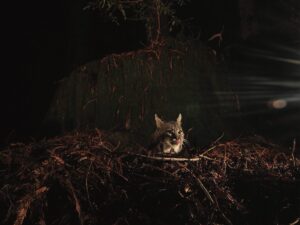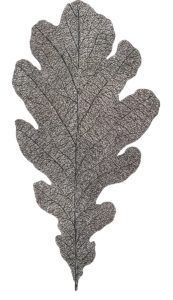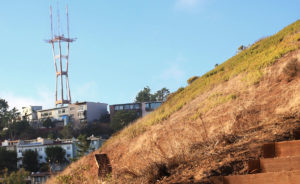It’s showtime. What better way to spend a blustery day in early March than to visit the two green film festivals in San Francisco? This year’s line-up features a number of films from Bay Area filmmakers and ones that touch on local topics.
Activism is a theme that runs through the San Francisco Green Film Festival in its second year, with it’s kick-off on Thursday of The Island President, a film by Bay Area filmmaker Jon Shenk about the recently-ousted leader of the Maldives and his political fight to save his country from being the first obliterated by sea level rise.
“We really honed in on the most overarching theme and concern is climate change,” said Rachel Caplan, the festival’s CEO and founder.
The festival is featuring 40 films from March 1-7 at the San Francisco Film Society Cinema at 1746 Post Street. Among the other highlights are profiles of two iconic figures in the American environmental movement.
Who Bombed Judi Bari by local filmmakers Mary Liz Thomson and Darryl Cherney is a documentary about the assassination attempt on Headwater Forests activist Judi Bari in Oakland in 1990 and the resulting criminal investigation. The March 2 world premier commemorates the 15th anniversary of Bari’s death. And from the makers of Butterflies and Bulldozers, last year’s featured film about the movement to spare San Bruno Mountain from development, comes Green Fire: Aldo Leopold and the Land Ethic of our Time. Ann and Steven Dunsky tell the story of the Wisconsin ecologist who pioneered the wilderness conservation movement in the 1920s and 1930s and founded the science of wildlife management.
Caplan said the festival is responding to the impulse many people feel when they see compelling environmental films: What can I do about it? Panel discussions, handouts giving people simple things they can do to make a difference, and a story booth in the lobby will give viewers an opportunity to respond to the stories, she said.
Then, March 8-11 is the ninth annual San Francisco Ocean Film Festival at the Aquarium of the Bay in Fisherman’s Wharf, which is featuring a number of short films about local topics. St. Francis Yacht Club Heavy Weather Laser Slalom is a 4-minute short on the thrills of racing to the finish line in a Laser one-design sailboat in the San Francisco Bay. Also showing is Into the Deep with Elephant Seals about the 4,500 pound heavyweights that descend annually to breed on Ano Nuevo State Reserve south of San Francisco, while Movement visualizes the power of waves and water on the California coastline.
Bay Nature’s Paul Epstein interviewed filmmaker Jon Shenk about the premier of The Island President and filed this Q&A.
—–
Jon Shenk, an award winning documentary cinematographer and filmmaker, premieres his newest film, The Island President, at the San Francisco Green Film Festival on Thursday, March 1. The film depicts the Maldives’ recently-ousted leader Mohamed Nasheed during the time of his presidency striving to prevent his small archipelago from being washed off the face of the Earth by rising waters caused by global warming.
The film also addresses Nasheed’s incarceration during a previous regime, and the emergence of democracy in the Maldives. (Nasheed either resigned or was ousted a couple weeks ago, depending on the source.)
Shenk has won an Emmy for Blame Somebody Else, a feature about human trafficking; and he was the director of photography for the Emmy-winning documentary Smile Pinkie, about efforts to help children in India with cleft-lip and palate. We spoke with Shenk recently about the environment, human rights, filmmaking and his love of the Bay Area.
Q: Can you please set the context for this film?
SHENK: The film is about the environment, because that is what President Nasheed worked on during his first year in office. But, I can’t get over how much of a David and Goliath story it is, just how dramatic it is to watch Nasheed come up against the powers-that-be in the international community – India and China – and try to convince them of what’s going on in the Maldives and what needs to be done. It’s dramatic to watch the film because it’s access to a sitting head of state like you’ve never seen, at a period of his life when he’s peaking in his power and his ability to affect change.
Q: You have directed a number of highly regarded documentaries, including The Island President, Blame Somebody Else, Smile Pinkie, and The Lost Boys of Sudan. How and why did you become a documentary filmmaker?
SHENK: I grew up around photography. My dad was a very serious amateur photographer. In college, after taking courses in documentary and seeing films like The Thin Blue Line and Roger and Me, I caught the bug. I felt, Oh my gosh! If I could figure out a way to make a living doing that, that seems like the coolest thing in the world because it combined so many of my interests and seemed quite exciting.
Q: How did you choose this particular project and why is it important to you?
SHENK: I read about Mohamed Nasheed in 2008 winning the first democratically held elections in the Maldives. I was immediately intrigued by him. He seemed incredible. There’s this tiny country that sits in the Indian Ocean. Suddenly after 30 years of dictatorships it has a civil rights movement, a bloodless revolution and ultimately elections. And then Nasheed steps into office and immediately takes on the single most important issue of the day – climate change.
The interesting thing, and I had never really thought about it this way, is that Nasheed frames the climate debate as a human rights battle for the basic right to live a healthy life on planet Earth. He saw that as an extension of his work for democracy. He helped something go off in my mind, which now he’s helped many millions of people in the world see: the connection between people and livelihood, and climate change.
Q: The film is going to premier at the San Francisco Green Film Festival. Is this film of
particular significance to people in the Bay Area?
SHENK: Yes, the Bay Area has a lot of coastal land. Anybody who lives on or near the water is going to be particularly shocked by this film because the Maldives is a canary in a coalmine for all oceanfront property. Cities like San Francisco and others along the coast are going to be struck by this problem. There is no escaping it. It’s not like you can hole up on a mountaintop, thinking that climate change is not going to affect you – because it is.
Q: You did your graduate work at Stanford, here in the Bay Area. How has your Bay Area background affected your work?
SHENK: I love the natural beauty. In 15 minutes you can ride your bike or drive your car to some of the most beautiful places on Earth. My family and I have always hiked around the Marin Headlands and Inverness. When I went to Stanford we went to the Santa Cruz Mountains and the beaches north of Santa Cruz. So I’m just one guy in a long line of nature-lover/photographers who caught the nature bug from California.
I remember flying in to the Maldives for the first time, over those islands. The first thought that went through my mind was, “Oh my gosh! It’s one of the most beautiful places I’ve ever seen.” It’s not too different from seeing Half Dome for the first time. You look up and it’s just incredible that this exists on planet Earth!
Q: What can people who are concerned about the future of our planet do?
SHENK: One thing that I learned from Nasheed is the notion that everybody has a certain amount of power in their own lives, be it large or small, to do something about the “problem”. If you’re president of a country, then why not use the power of the presidency to start talking about climate change? Everybody has the ability to make the decision that Nasheed made. You can be an eight-year-old and be aware of a problem, and decide, OK, I’m going to start doing something about that today. Riding my bike to school instead of driving. Or composting. Or, I’m going to start a club and figure out a way to green the school. I’m a believer that individuals, using whatever they have at their disposal, can make a huge impact.
Q: Laila Ali, President Nasheed’s wife, contrasts her pessimism with his optimism. What’s your outlook?
SHENK: It’s so hard to be optimistic. Everything in our lives is built around the production of carbon dioxide. It’s so difficult to envision that changing. I can certainly see where Laila Ali is coming from. But it’s very difficult to go on unless you side with Nasheed. You very quickly go down a dark alley and get lost if you don’t have some hope that we can, working together, make a better world.
Q: Do you believe that the Maldives will be under water in your lifetime?
SHENK: It’s possible. It’s likely that the Maldives will soon experience catastrophic effects due to “climate chaos”, storms that come unexpectedly or are more violently than before, changing seasons which make sand erosion more intense, and fish less likely to bite at the usual times. Life will be made very much more harsh. You might see people moving away from the Maldives or consolidating to “safe” islands. As there are more environmental refugees in the world, more scarcity and less food – all due to climate change – I think that the world will begin to look more like our notion of developing nations, with great disparity between the wealthy and the poor, separated by armed guards and walls. And that’s what scares me most for my kids.
—–
In case you missed the Thursday premier, The Island President will show at the Landmark’s Embarcadero Center Cinema in San Francisco beginning March 30.
Note: Bay Nature is a media sponsor of the San Francisco Green Film Festival.

.jpg)




